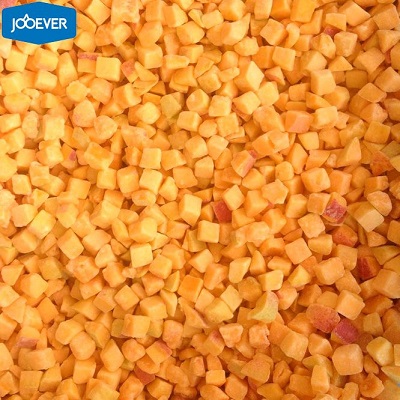Your reliable partner for frozen foods
In a world where convenience and longevity of food products are highly valued, frozen fruits stand out as a popular choice in many households and commercial settings. Offering the benefit of extended shelf life while preserving nutritional value and taste, frozen fruits have become a go-to option for maintaining a healthy diet year-round.
The process of freezing fruits is a scientific marvel that balances the preservation of nutritional content with the extension of shelf life. When fruits are frozen, the water inside their cells forms crystals, which, if frozen rapidly, minimizes cellular damage and preserves the fruit's structural integrity. This method maintains much of the fruit's original texture, flavor, and nutritional value, including vital vitamins and antioxidants.
However, it's important to note that not all fruits freeze equally. The water content, cellular structure, and skin thickness can affect how well a fruit tolerates the freezing process. Fruits like berries, cherries, and peaches freeze well due to their skin's ability to contain the expanding ice crystals, whereas fruits with high water content, like watermelon, may become mushy after thawing.
The shelf life of frozen fruits is a key factor that varies depending on the type of fruit and the conditions under which it's stored. As a general guideline, most frozen fruits maintain optimal quality for 6 to 12 months in the freezer. This duration can extend up to a year for fruits like berries and grapes, which have a more robust structure and lower moisture content. In contrast, fruits with higher moisture content, such as melons and citrus fruits, may have a slightly shorter optimal shelf life.
It's important to remember that these time frames refer to quality rather than safety. Frozen fruits, when kept at a consistent temperature of -18°C (0°F), can be safe to consume well beyond these periods, but their taste, texture, and nutritional value may start to decline.
For maintaining the quality of frozen fruits, proper storage is crucial. Here are some tips to ensure optimal preservation:
Temperature Consistency: Keep frozen fruits at a constant temperature of -18°C (0°F) to prevent the formation of ice crystals that can degrade quality.
Airtight Packaging: Use airtight containers or freezer bags to protect the fruits from freezer burn and oxidation. Remove as much air as possible before sealing.
Organization: Label the containers with the date of freezing to keep track of shelf life and ensure a first-in, first-out usage.

Using frozen fruits effectively requires proper thawing techniques. Here's how to do it right:
Refrigerator Thawing:
The safest way to thaw frozen fruits is in the refrigerator. This method maintains a consistent, safe temperature, reducing the risk of bacterial growth.
Immediate Use:
For recipes that cook the fruit, such as baking or making sauces, fruits can often be used directly from the freezer.
Texture Changes:
Be mindful that thawed fruits may not retain the same texture as fresh fruits, making them more suitable for cooked dishes, smoothies, or as toppings.
Frozen fruits are not only convenient but also healthy. They are often frozen at peak ripeness, locking in vital nutrients. However, there are some safety considerations to keep in mind:
Nutrient Retention: Freezing preserves most of the vitamins and antioxidants in fruits.
Avoid Cross-Contamination: Always handle frozen fruits with clean utensils and avoid cross-contamination with raw meats or other potential sources of bacteria.
Incorporating frozen fruits into your diet can also be beneficial from an economic and environmental perspective:
Cost-Effectiveness:
Frozen fruits can be more economical, especially when purchasing seasonal fruits out of season.
Reducing Food Waste:
Freezing fruits at their peak can reduce food waste, as they have a longer shelf life than fresh fruits.
Environmental Impact:
Consider the carbon footprint associated with the freezing and transportation of frozen fruits.
Frozen fruits offer a convenient, nutritious, and versatile option for those looking to incorporate more fruits into their diet. By understanding the shelf life, storage methods, and usage tips for frozen fruits, consumers can enjoy their benefits to the fullest. Whether used in smoothies, baking, or as a nutritious snack, frozen fruits are a valuable addition to any kitchen.